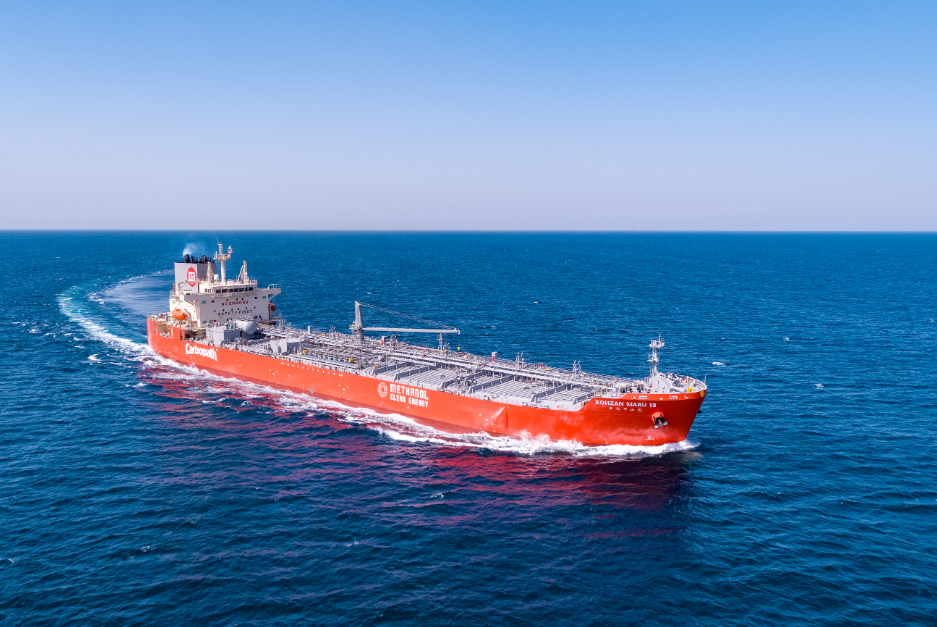On May 30, HD Hyundai Mipo delivered the latest methanol carrier “Kohzan Maru VII” to Japanese shipping giant Mitsui O.S.K. Lines, Ltd. (MOL). The vessel has signed a long-term charter contract with Japan’s Mitsubishi Gas Chemical Company, Inc.(MGC) in May 2023.

MOL and MGC have steadily pursued innovative, industry-leading maritime transportation solutions to meet evolving needs. Through their operation of the new dual-fuel methanol vessel, the two companies expect to advance their contributions to a more carbon-neutral world.
The 47,960 DWT vessel is powered by a Hyundai-Man B&W 6G50ME-C9.6-LGIM electronically controlled dual-fuel two-stroke engine. Notably, one of its two fuels is methanol, a next-generation fuel for truly sustainable operation.
The Kohzan Maru VII is Japan’s first dual-fuel, ocean-going, methanol-transport vessel chartered by a domestic shipper on a long-term basis. MGC and MOL began operating Japan’s first methanol-dedicated vessel, the Kohzan Maru, in 1983, to safely and efficiently transport methanol by sea. The Kohzan Maru VII will benefit from extensive expertise accumulated in the years since to transport environmentally sustainable methanol derived from renewable resources handled MGC.
Methanol is a basic chemical with a wide range of applications. It is considered a clean fuel because it emits low levels of CO2, sulfur oxides (SOx), nitrogen oxides (NOx) and particulate matter (PM) during combustion. There is increasing attention on alternative fuels as replacements for heavy fuel oil. The EU, for example, has introduced greenhouse gas (GHG) emission regulations for maritime transport, such as FuelEU Maritime and the EU Emissions Trading System (EU ETS). In addition, the International Maritime Organization’s 83rd Marine Environment Protection Committee (MEPC 83) is discussing medium-term measures for GHG reduction.
Methanol can easily be stored and handled with existing infrastructure and offers higher safety levels than alternative fuels. Replacing conventional fuels with methanol made from CO2, waste plastics and bio-based methanol is expected to realize truly carbon-neutral maritime transportation across the entire lifecycle of these environmentally sustainable fuels.


